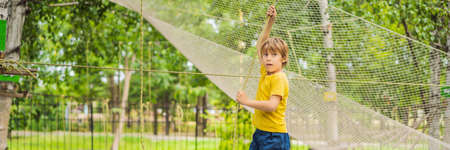Introduction to Leave No Trace in the British Countryside
Family camping in the British Isles is more than just pitching a tent and enjoying the great outdoors; it’s about forging a deep connection with landscapes steeped in history, culture, and natural beauty. From the rugged fells of the Lake District to the ancient woodlands of Scotland and the wild coastal stretches of Wales, each region offers a unique setting for families to explore together. But as more people discover these treasured places, the responsibility to protect them grows ever more urgent. Teaching children about Leave No Trace principles isn’t just good practice—it’s essential for preserving these local environments and traditions for generations to come. By embracing this ethos on your family adventures, you’re not only safeguarding wildlife and habitats but also passing down a respect for British countryside customs, from keeping footpaths clear to honouring centuries-old rights of way. In an age when wild spaces are under increasing pressure, instilling these values early ensures your children become stewards of the land—caring for both its physical well-being and its rich cultural legacy.
British Wildlife and Habitats: Understanding What’s at Stake
When embarking on a family camping adventure in the British Isles, it’s crucial to recognise the immense value of our native species and diverse ecosystems. Britain boasts an impressive variety of habitats—from ancient woodlands and windswept moorlands to salt marshes and rugged coastlines. Each of these environments is home to unique wildlife, and teaching children about their significance helps foster respect for nature while reinforcing Leave No Trace principles.
Key British Habitats and Their Residents
| Habitat | Typical Species | Conservation Concerns |
|---|---|---|
| Ancient Woodland | Badger, Tawny Owl, Bluebell, Hazel Dormouse | Habitat loss, invasive species |
| Moorland | Red Grouse, Mountain Hare, Heather, Skylark | Overgrazing, wildfires |
| Coastal Cliffs | Puffin, Kittiwake, Sea Thrift, Grey Seal | Erosion, disturbance by visitors |
| Lakes & Rivers | Otter, Kingfisher, Water Vole, Brown Trout | Pollution, habitat fragmentation |
| Grassland Meadows | Bee Orchid, Barn Owl, Hedgehog, Butterflies | Pesticides, development pressure |
The Importance of Protecting Natural Environments
Every action taken during a camping trip can impact these delicate systems. Trampling wildflowers or leaving behind rubbish may seem harmless but can have lasting effects on local flora and fauna. For example, bluebells—a symbol of British spring—are easily damaged by footfall and take years to recover. By educating children on how interconnected these habitats are with the wildlife they support, families develop a sense of stewardship essential for long-term conservation.
Simple Ways Children Can Help Protect Local Nature:
- Stick to marked paths: Prevents damage to fragile plant life and minimises soil erosion.
- Avoid disturbing animals: Observe wildlife quietly from a distance; never feed or try to handle them.
- Leave what you find: Encourage kids not to pick flowers or collect stones—everything has its role in the ecosystem.
- Dispose of waste properly: Teach children that litter harms both land and water creatures.
- Respect fire rules: Only light fires in designated areas to avoid wildfires that devastate moorlands and forests.
Cultural Respect: A British Perspective
The countryside code is ingrained in UK outdoor culture: “Respect. Protect. Enjoy.” Passing this tradition onto the next generation ensures that Britain’s natural wonders remain unspoiled for years to come. By understanding what’s at stake—and why it matters—we empower young campers to become guardians of our wild places as part of their everyday lives.

3. Essential Leave No Trace Principles for Families
When embarking on a family camping adventure across the British Isles, it’s crucial to instil the Leave No Trace ethos in young explorers. Here’s a practical guide to the seven core principles, each illustrated with scenarios and actionable tips tailored for UK campsites, woodlands, and national parks.
Plan Ahead and Prepare
Before setting off, involve children in route planning and kit checks. Teach them about local rules, weather patterns, and seasonal wildlife—essential knowledge whether you’re pitching up in the Lake District or wild camping on Dartmoor. Show kids how preparing packed lunches in reusable containers reduces waste from meal deals or snack wrappers.
Travel and Camp on Durable Surfaces
Opt for established paths and designated pitches—trampling bluebells or rare peat bogs can damage sensitive habitats found throughout the UK. Challenge your children to spot waymarkers on the South West Coast Path or choose grassy areas free of wildflowers when setting up tents.
Dispose of Waste Properly
Make rubbish collection a game: who can fill their litter bag fastest? Explain why we pack out everything, even orange peel or tea bags, as they take months to break down in Britain’s cooler climate. Use public loos where available or teach responsible wild toileting if you’re deep in the Highlands—always 30 metres from water sources.
Leave What You Find
Encourage curiosity but set boundaries: no picking wildflowers, disturbing old stone walls, or pocketing fossils on Dorset beaches. Instead, equip children with cameras or sketchbooks to record their discoveries without taking anything home except memories.
Minimise Campfire Impacts
Many UK sites ban open fires due to wildfire risk. If fires are permitted, use raised fire pits and only burn dead wood. Involve kids in collecting kindling responsibly or opt for a stove brew-up instead—a perfect chance to teach about fuel efficiency with a cuppa under canvas.
Respect Wildlife
Balding lambs in Snowdonia or ground-nesting birds in Northumberland need space. Teach children how to observe animals quietly with binoculars rather than chasing or feeding them—and always close gates behind you on farmland walks.
Be Considerate of Others
Remind young campers that sound travels far on still nights by lochs or moors. Encourage low voices after dusk and respect fellow campers’ privacy—sharing stories around a lantern instead of blaring music helps everyone enjoy the peace of Britain’s wild places.
4. Hands-on Learning: Teaching Leave No Trace Through Activities
Embedding Leave No Trace principles in young minds requires more than just telling children what to do; it demands practical, memorable engagement. Across the British Isles, families can transform camping trips into immersive learning experiences by integrating hands-on activities and games that resonate with children of all ages. These activities not only teach vital outdoor ethics but also foster a genuine love for nature and respect for our wild spaces.
Nature Scavenger Hunt
One effective way to instil awareness is through a Leave No Trace scavenger hunt. Children can be tasked with finding natural objects—like leaves, feathers, or stones—without picking or disturbing them, reinforcing the “Leave What You Find” ethic. Parents can provide checklists and encourage discussion about why certain things should remain untouched.
Rubbish Relay
Turn litter-picking into a friendly competition by organising a Rubbish Relay. Equip each child with gloves and a bag, then set a timer to see who can collect the most litter without harming any flora. This transforms tidying up into a fun game while emphasising the importance of “Dispose of Waste Properly.”
Table: Sample Activities for Teaching Leave No Trace
| Activity | Leave No Trace Principle Taught | Materials Needed |
|---|---|---|
| Scavenger Hunt | Leave What You Find | Checklist, pencils |
| Rubbish Relay | Dispose of Waste Properly | Bags, gloves, timer |
| Campfire Setup Demo | Minimise Campfire Impact | Fire pit (if permitted), water bucket |
| Wildlife Watching Bingo | Respect Wildlife | Bingo cards, binoculars (optional) |
Storytelling Around the Campfire
Gathering around the campfire (where allowed) is a cherished British camping tradition. Use this time to tell stories about wildlife and the impact humans have on nature. Encourage children to share their own observations from the day, prompting conversations about respecting wildlife and minimising impact.
Tread Lightly Trail Walks
Guide your family on mindful trail walks where children are challenged to spot signs of trail erosion or damage caused by previous visitors. Discuss ways to avoid similar mistakes by sticking to established paths and using proper walking techniques, directly teaching “Travel and Camp on Durable Surfaces.”
Conclusion: Building Habits Through Play
The key to successful Leave No Trace education lies in making it part of everyday adventure. By weaving these practical activities into your family camping routine throughout Britain’s countryside, you help your children develop lifelong habits that protect our precious landscapes for generations to come.
5. British Camping Etiquette and Local Customs
When camping with your family in the British Isles, understanding and respecting local etiquette is just as vital as following Leave No Trace principles. The UK has a unique relationship with its countryside, shaped by centuries of tradition, specific laws, and a deep-seated appreciation for both public access and private land rights. Here’s what you need to know to ensure your children learn how to fit in respectfully while exploring the wilds of Britain.
Rights of Way: Navigating Public and Private Land
Unlike some countries where wild camping is widely accepted, much of Britain’s land is privately owned, but crisscrossed with public footpaths and bridleways. Teach your children about ‘rights of way’—these marked paths are legal routes for walkers and sometimes cyclists or riders, even across private fields. It’s crucial not to stray from these paths unless you have explicit permission. Always close gates behind you, leave stiles as you find them, and avoid disturbing livestock or crops.
The Countryside Code: Your Family’s Guiding Rulebook
The Countryside Code is the backbone of outdoor behaviour in the UK. Key points include respecting everyone—other visitors, landowners, and wildlife—protecting the environment by taking all litter home, and keeping dogs under control. Impress on your kids that even biodegradable waste (like orange peel) should be packed out; it doesn’t belong in local ecosystems.
Traditional Courtesies: The Unwritten Rules
In Britain, courtesy runs deep: greet fellow walkers with a friendly “hello,” avoid loud voices or music, and keep campsites discreet and tidy. Wild camping is tolerated in certain areas like parts of Scotland or Dartmoor National Park but is generally discouraged elsewhere without landowner consent. Show your children how to set up camp late in the day, leave early, and never light open fires unless allowed—it’s safer and more respectful to use a camp stove.
Blending In: Advice for Respectful Camping
If you’re visiting popular spots such as the Lake District or Snowdonia, book established campsites whenever possible. Many British sites have quiet hours after 10pm—teach your family to settle down quietly. When using communal facilities, leave them cleaner than you found them; this small act earns respect from locals and fellow campers alike. By embracing these customs, your family will not only enjoy a smoother trip but also help preserve access for future generations.
6. Dealing with Rubbish and Waste: UK-Specific Solutions
Managing litter and waste responsibly is a cornerstone of Leave No Trace, especially in the British Isles where local ecosystems are sensitive and public land is highly valued. When camping as a family, it’s crucial to educate children about the unique challenges and solutions found across the UK.
Understanding the UK Approach to Waste
The UK has a well-established system of recycling and waste management, but its effectiveness relies heavily on individual responsibility. Teach children to separate recyclables—such as plastics, glass, tins, and paper—using colour-coded bins commonly found at campsites and public parks. In rural areas where facilities may be sparse, families must plan ahead by bringing rubbish bags and taking all waste home if necessary.
Practical Steps for Sustainable Waste Management
- Always pack multiple rubbish bags for sorting landfill waste from recyclables.
- Familiarise your family with local signage; recycling rules can vary between England, Scotland, Wales, and Northern Ireland.
- If facilities are lacking, operate on a “pack it in, pack it out” basis—take every bit of your rubbish away with you.
Leave No Trace: Best Practices in the British Isles
Teach children not only to pick up their own litter but also to leave a place cleaner than they found it—a principle known locally as “take only memories, leave only footprints.” Use this ethos to instil pride in caring for the landscape. Show them how even small items like crisp packets or biodegradable food scraps can harm wildlife or spoil the natural beauty.
Composting and Human Waste Considerations
On some sites, composting toilets or special disposal areas may be available. Explain their use and importance. If wild camping (where permitted), follow UK-specific Leave No Trace guidance: bury human waste at least 15cm deep and 30 metres from water sources, using a trowel. Always pack out used toilet paper in sealable bags unless otherwise instructed by land managers.
Setting an Example for Future Generations
By managing rubbish and waste conscientiously—and involving your children every step of the way—you reinforce respect for the British countryside. This hands-on education ensures that future generations will not just enjoy these wild places but help protect them for years to come.
7. Inspiring Ongoing Stewardship in Young Campers
Fostering a lifelong respect for nature in children goes far beyond a single camping trip—it’s about instilling values that will endure well into adulthood. As families enjoy the wild beauty of Britain’s national parks, ancient woodlands, and rugged coastlines, parents and guardians can take proactive steps to encourage ongoing stewardship in their young campers. One effective approach is to introduce children to local conservation groups such as The Wildlife Trusts or the Woodland Trust. By participating in volunteer days—whether planting trees, cleaning up riverbanks, or surveying wildlife—children become directly involved in safeguarding their favourite outdoor spaces. This hands-on engagement makes environmental care personal and meaningful.
Integrating Nature into Daily Life
Stewardship doesn’t have to end when the tent is packed away. Encourage children to bring Leave No Trace principles back home by reducing waste, recycling diligently, and respecting green spaces in their neighbourhoods. Get them involved with school eco-councils or ‘Green Teams’, which often collaborate with local councils on projects like habitat restoration or community gardening. These small but significant actions help cement sustainable habits as part of everyday life.
Building Connections Through Community Actions
Community initiatives offer another powerful way to nurture a sense of responsibility. Many towns across the British Isles host biannual litter picks or beach cleans—ideal family activities that combine fun with purpose. Encourage your child to join these efforts, perhaps even bringing along friends to make it a social event. Seeing the collective impact of such endeavours reinforces the message that everyone has a role in caring for Britain’s natural heritage.
Encouraging Advocacy and Leadership
As children grow older, support them in taking on leadership roles within youth-led environmental organisations like the RSPB’s Wildlife Explorers or Scout groups with conservation badges. These opportunities not only deepen their understanding of ecological issues but also empower them to educate others—spreading the Leave No Trace ethos further afield.
By weaving together family traditions, community action, and ongoing learning, you’re helping raise a new generation of outdoor stewards—children who cherish Britain’s wild places and are equipped to protect them for years to come.


